- News
- |
- Diversity and inclusion
Black History Month – Our Stories
October is Black History Month - a time to celebrate the rich and varied contribution that black people have made to the UK and to focus on how we keep moving towards a fair and equal society.
As Black History Month begins, we’re reflecting on what we’re doing to make Openreach a more diverse and inclusive place to work – thinking about what we’ve done well and about what we can do better.
One of the key things that we’ve learned is how important it is for everyone to have a voice and for people from diverse backgrounds to tell their own stories.
As part of Black History Month, some of our colleagues will be sharing their experiences with us – our latest story comes from Charlene Oladeji, an Advanced Engineer, who is helping to deliver Full Fibre across the UK.
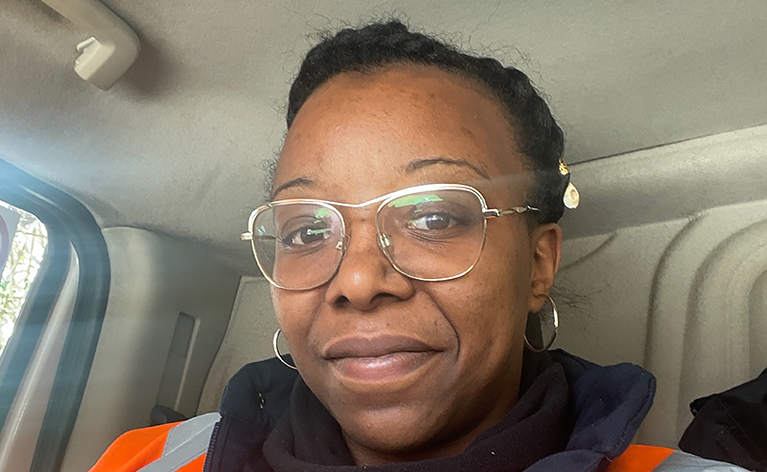
Charlene's story
Charlene’s background was in retail and beauty, until she decided that she wanted a career change.
“I was living in Wales and saw an advert for a job as an Openreach engineer. I filled out the application form, but then sadly I lost my grandmother and ended up moving back to London. I was still thinking about Openreach though, so I applied again and was accepted.”
She found that she had a passion for engineering – and perhaps that was no accident.
“I’ve always been a fiddler – when I was 16, my mum had an old cable box and I fiddled with it to the point where we were getting the cartoon and movie channels. When I was applying for Openreach, I found out that my granddad, on my dad’s side, had been a BT engineer. I think it was meant to be!”
She joined Openreach in November 2018 as a Service Delivery engineer, working on the copper network.
“My journey with Openreach has definitely had its ups-and-downs. Especially in the first six months – I really struggled. I had some male engineers tell me that it wasn’t a job for women. And, as a Service Delivery engineer you work solo, you’re on your own. That can be difficult for women – especially if you’re working rurally, where there aren’t any toilet facilities. When I first joined, I didn’t see many engineers who were women, and even fewer who were women of colour.”
Despite a tough start, Charlene believes huge strides are being made at Openreach.
“Openreach are definitely adapting to make the job attractive to different people – to make it more diverse. There’s much more recognition of the issues women face and Openreach are working to make things easier – things like providing sanitary towels and managers being flexible in the work you can pick up at certain times.”
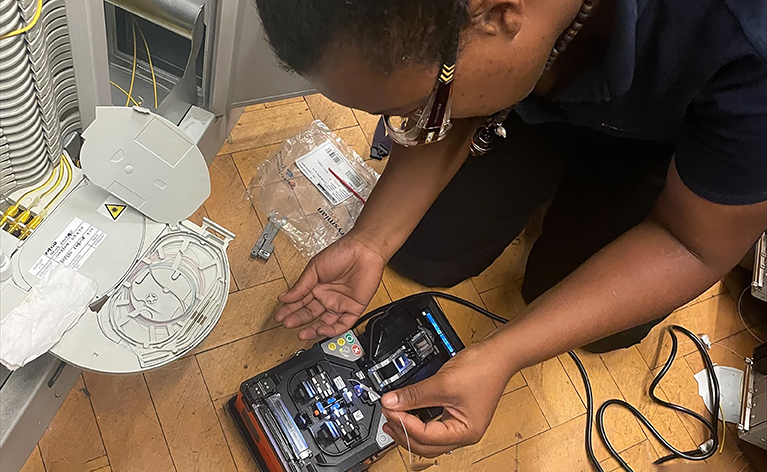
One of her passions is career development, and the opportunities for progression at Openreach are something she really values. She’s aiming to become a clerk of works – a supervisory role that involves carrying out site inspections and making sure builds are following the right specifications and standards.
“I pushed to do a lot of things. I shadowed surveying teams and a Precision Testing Officer (PTO), and I did my underground (UG) qualifications as soon as I could. In July 2022, I moved from Service Delivery to Chief Engineers, which means I’m working on the fibre network. I volunteered for a lot of projects – helping with rodding and roping, splicing, running hydras in the exchange. One of the best things about Openreach is that, if you want to progress your career, they’ll back you. I’ve experienced it myself – I’ve done my fibre foundation course and I’m on the career pathway for a clerk of work.”
She’s also seen a change in something else that’s important to her – representation.
“We’re seeing more and more women become managers and team leaders at Openreach. And more women joining as engineers. Not only that, but since I’ve been here maybe half of all the new female engineers have been black women. So, the more people can see that engineering is a job that anyone can do, the more people apply. Openreach are working to make the job much more inclusive – like providing uniforms with hijabs for female Muslim engineers.”
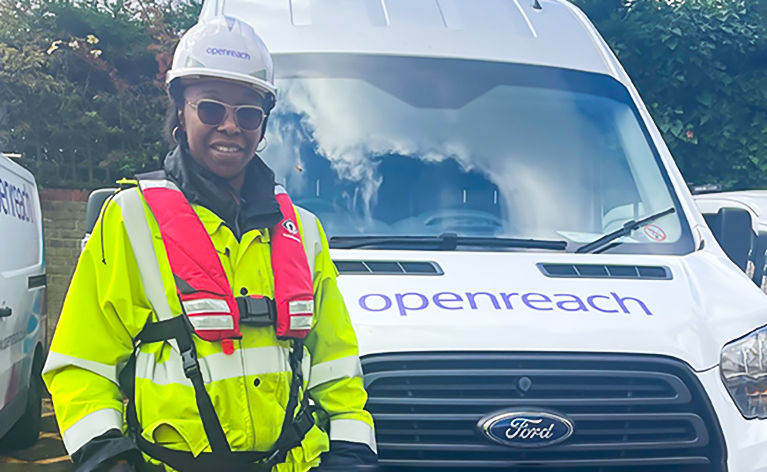
A fundamental part of being an engineer is travelling – to different areas and to customers’ homes. Dealing with that can be a challenge that each engineer experiences differently.
“Some areas are far less diverse than others and can be more ignorant. My mum is of mixed heritage and my nan’s white. I think that the stigma that she and my mum suffered made me stronger. I can brush off other peoples’ ignorance as their problem, not mine. I’d inform my manager to make sure they’re aware, but I don’t ask to be moved out of an area. But, if any engineer feels unsafe, your manager is obligated to move you to another area where you do feel safe and comfortable to work.”
Charlene’s a big believer in asking questions. It’s part of her nature to be curious, but she also believes it’s crucial to improving diversity and inclusion. She’s glad that we celebrate Black History Month – but like our first interviewee, Janet, she’s keen to point out that she’s black every day.
“Black History Month is nice – I want to show people what black culture is like, because it’s not just one thing. It’s diverse in itself - African and Caribbean. I come from a really mixed family, and we all look different. Most people would look at me and assume I’m black, not mixed heritage. And I like that – because if they asked me there’d find out there’s more to it. People should ask questions, as long as they’re in good faith. The Allies programme at Openreach is amazing – it’s a safe space to ask questions and improve your own learning.”
Janet’s story
03 Oct 2022
In September 2020, we introduced a Reverse Mentoring programme, to connect senior managers with colleagues from diverse backgrounds and life experiences. Janet knew immediately that she wanted to be a part of it.
“They were interested in anybody who’d be willing to share their lived experiences with a senior manager within Openreach – so they could understand some of the issues that, as black people, we go through and some of the challenges we face. By giving them a better understanding, we can hopefully help to improve things in the business.”
Without knowing exactly what the programme would entail, she put herself forward, applied, and was accepted. A few weeks later, she found out who her mentee would be.
“We’d never met before, but I knew of them. I started to doubt whether I’d be able to help them – for me, it was really daunting. I’m just being honest here- I just felt ‘Oh my gosh’. I was really nervous, but I thought ‘I’ll just see how this goes’.”
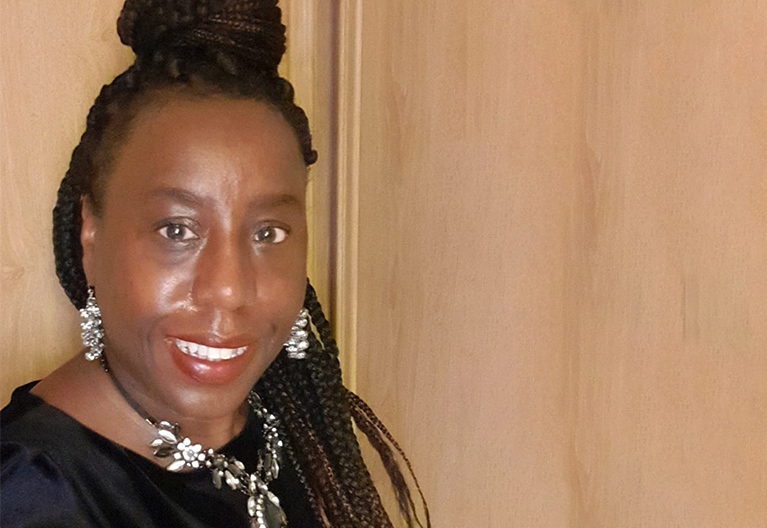
She wasn’t left alone in the experience – there were joint calls with the other members of the Reverse Mentoring cohort, and our dedicated Diversity and Inclusion team was there to support them all. The thing that convinced Janet that she’d really have a chance to affect change, however, was the initial phone call with her mentee.
“It was about just getting to know each other and building a rapport. And she was absolutely lovely. She put me at ease within the first few seconds of our call, and by the end, I felt like I’d known her for ages. I knew then that we’d have a really good partnership in the programme.”
This connection was crucial, because Janet was adamant that for this to be of value, they’d need to trust each other.
“I wanted her to be free to ask me anything – any questions at all. We made it a safe, confidential space, on both sides, which meant we could explore everything. We talked about my life, where I grew up, my family. We talked about my experiences of working, both inside and outside of Openreach, and I was able to explain the barriers that I’ve faced – the microaggressions and biases. Just breaking it all down, honestly. And she was honest with me too – that she’d never seen it like that before. And that’s why the programme was valuable – because, if you haven’t lived it, there are so many things that you won’t see.”
Initiatives like the Reverse Mentoring programme are only worthwhile if the senior managers – and the company at large – not only listen, but also apply the things they’ve learned. Janet believes in the journey we’re on at Openreach, while recognising the need to remain focused on change.
“I made a very good friend in the programme – my mentee and I are still in touch regularly. I’d recommend anyone to give it a go if they get the chance. And there’s been a huge difference in the last two years. The company isn’t there yet, but I can see the transformation in that time. I feel like the business has listened and is listening.”
Janet’s time in the Reverse Mentoring programme may have come to an end, but she’s a keen member and contributor to our Ethnic Diversity Network (EDN), as well as ally to all our Peoples’ Networks. She’s active on Facebook Workplace, running a food group where people share recipes from across cultures and countries, and regularly posts anything she thinks will raise awareness or inspire debate.
“I love Black History Month. But Black History isn’t just a month – I’m black every day, you know? So, I’ll post anything that I see in the media where I can say ‘This is how this impacted me’ or ‘what do you think about this?’”
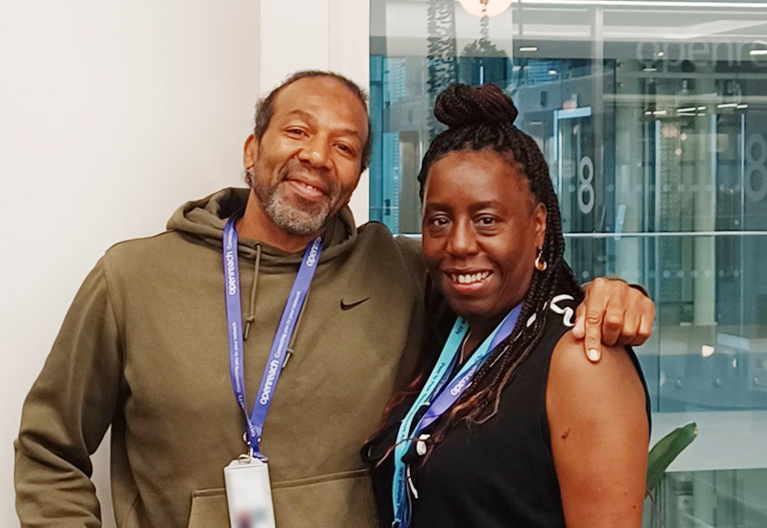
For Janet, understanding is the key. Understanding that people are diverse and that we don’t all experience life in the same way. The more we can understand this, the further forward we can move.
“Take an article I posted about the Soul Cap. It’s a swimming cap designed for black hair. The standard swimming cap offered no protection to black people’s hair and yet it was the ‘standard’, so it was the only one allowed. Now, the International Swimming Federation (ISF) has approved the Soul Cap, at last. It’s a great example of things – of struggles we face – that people might otherwise not be aware of.”
Related Articles
-
Openreach supports Service With Respect
06 Nov 2020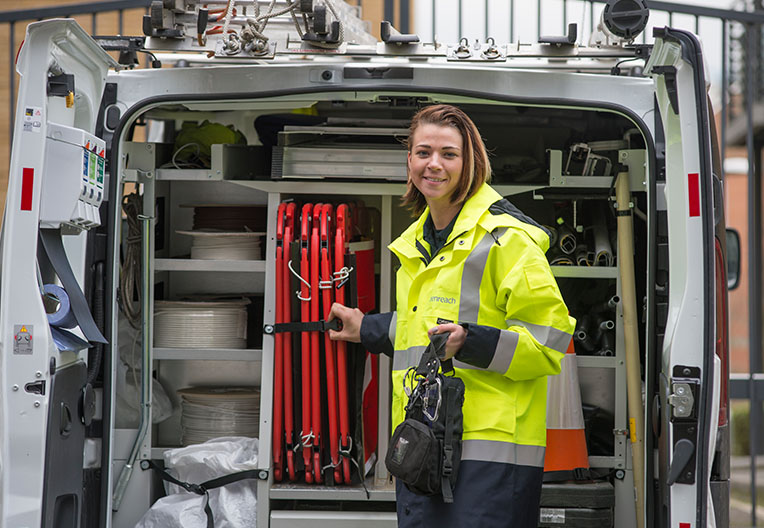 Openreach is backing the ICS's national Service With Respect campaign to ensure our engineers and other service workers get the respect they deserve.
Openreach is backing the ICS's national Service With Respect campaign to ensure our engineers and other service workers get the respect they deserve. -
From trainee engineer to the prestigious Chief Engineers Office, Kerry's story
17 Feb 2021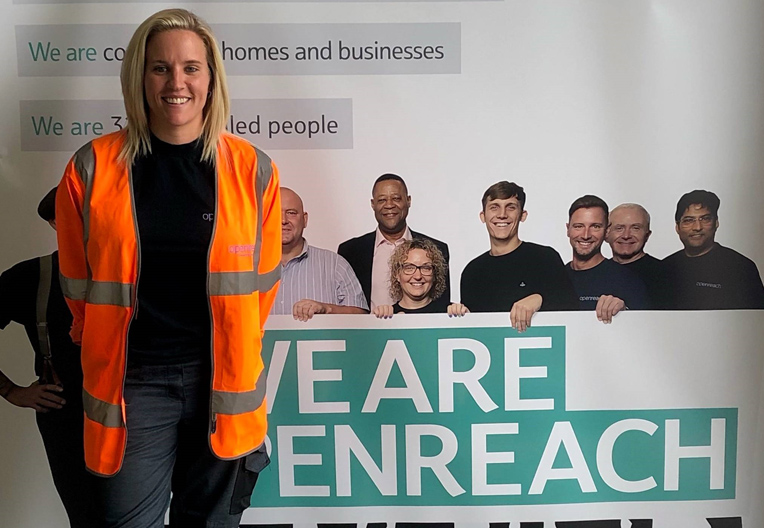 Where can a ‘feel the fear and do it anyway’ attitude take you in Openreach? Kerry tells her story about how attitude can take you places you never imagined.
Where can a ‘feel the fear and do it anyway’ attitude take you in Openreach? Kerry tells her story about how attitude can take you places you never imagined. -
Pride 2022 kicks off at Openreach
05 Jun 2022 Our Pride network is over 850 members strong and as Pride Month kicks off, everyone’s really excited to be taking part in something that means so much to so many people.
Our Pride network is over 850 members strong and as Pride Month kicks off, everyone’s really excited to be taking part in something that means so much to so many people.



















